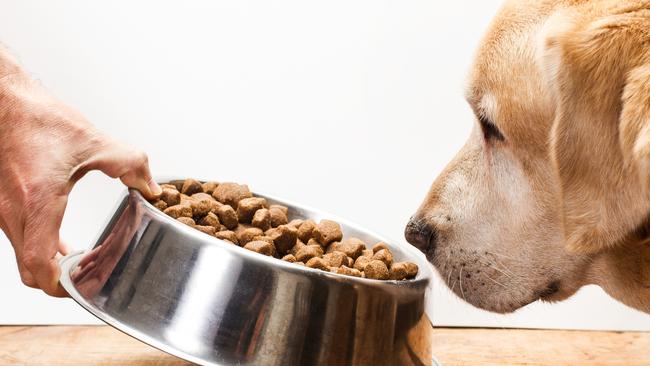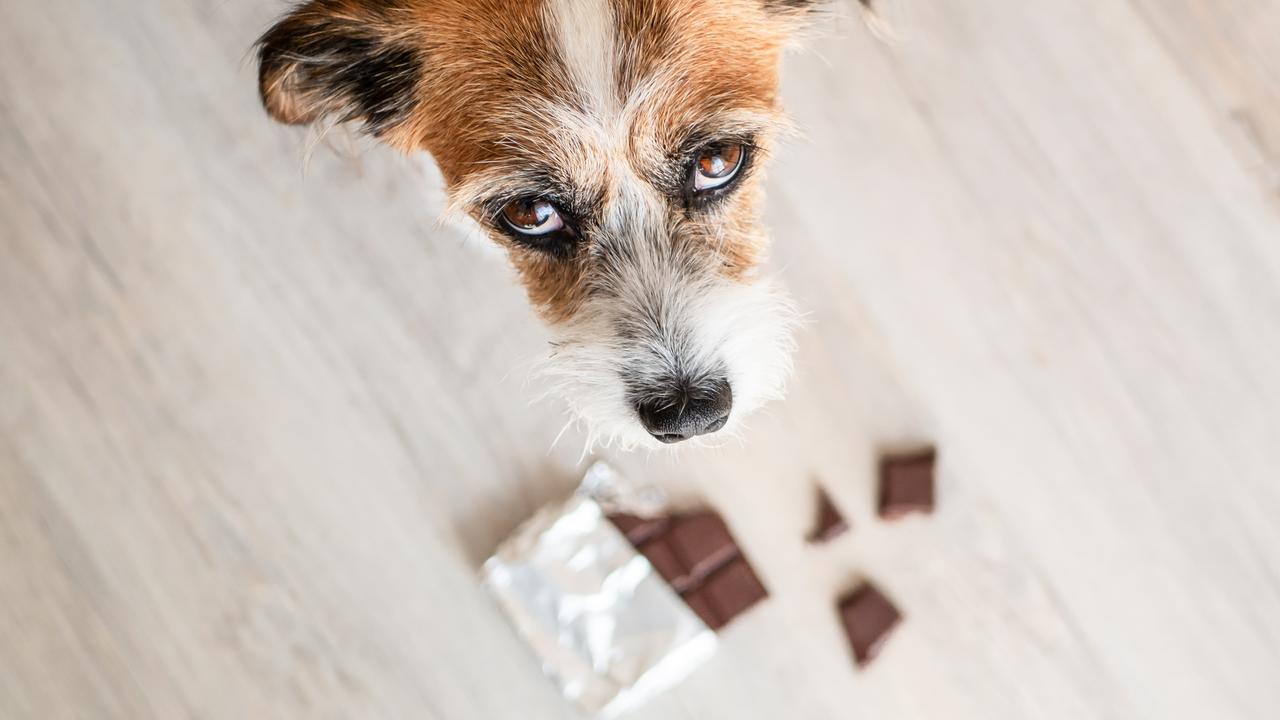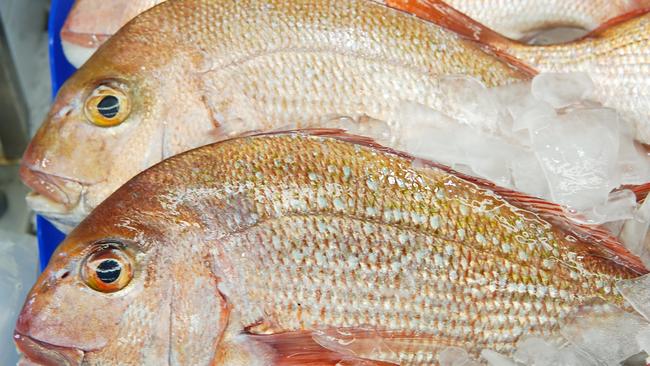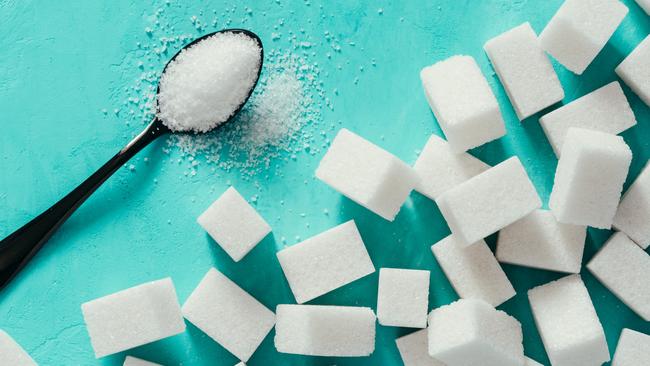The 28 things you should never feed your dog
Every dog owner knows chocolate can kill their pooch. But what about walnuts, or grapes? Here’s what vets say you should avoid putting in the dog bowl. SEE THE FULL LIST.

Local
Don't miss out on the headlines from Local. Followed categories will be added to My News.
STICK to premium dog food, supplemented with some fresh meat and a few vegetables such as potatoes and carrot.
That’s the message from experts, who say they are many foods which are harmful for man’s best friend.
DOGS OF OZ: VOTE NOW FOR AUSTRALIA’S TOP DOG
DOGS OF OZ: THE SECRET LIVES OF DOGS
DOGS OF OZ: STUDENT’S LIFE TRANSFORMED BY DOG
And don’t feed them scraps from the table, particularly if you don’t know what is in your half-eaten dinner.
University of Queensland Small Animal Hospital GP nurse, Biancia Galletly, said they occasionally treated dogs which had ingested toxic foods, including on one occasion chocolate-coated macadamias.
“Many foods can be OK if they’re in small enough amounts, the problem is that except for perhaps chocolate we don’t know a lot about the dose needed to cause problems,’’ she said.
“Some dogs can have a grape and be fine and others could get acute kidney damage, particularly if they’re a small breed and they eat sultanas.
“Garlic is another food like that, and also onion.
“They can both be quite bad as they can break down blood cells and cause bleeding, but it’s not known what doses cause problems.
“Veterinary professionals recommend a premium commercial diet as a cat’s or dog’s main food source.
“While treats can be given to most pets, it’s important to use appropriate treats in appropriate portion sizes.
“Raw meats are generally not recommended at they can harbour bacteria that can cause gastrointestinal upset.
“Generally speaking, it is not recommended to feed table scraps as there are a number foods that can be toxic to pets.
“Although the toxic doses for most foods are unknown, foods such as onions, garlic, avocado, chocolate, macadamia nuts and mushrooms can prove fatal for some dogs.’’
28 PROBLEM FOODS FOR DOGS
1. Chocolate

Stimulants called methylxanthines, particularly theobromine, can cause diarrhoea and vomiting in small amounts and seizures, irregular heart function, frequent urination, tremors, restlessness and even death in larger amounts.
Cocoa powder has the highest concentration of theobromine, followed by unsweetened baker’s chocolate, semisweet and dark chocolate.
Low quality milk chocolate such as in Easter eggs and white chocolate, which technically is not even chocolate, have the least effects.
2. Grapes/sultanas
No one really knows why grapes and particularly sultanas are poisonous to dogs. In serious cases they can cause kidney failure, even if only one or two sultanas are eaten if the breed is small and susceptible. But other dogs suffer no ill effects. Vomiting is an early symptom followed by depression and low energy.
3. Onions, garlic and chives
Anaemia, vomiting or even poisoning, if eaten in large amounts, can occur due to disulfides and sulfoxides (thiosulphate), regardless of whether they are cooked or raw.
4. Macadamias
Dogs can vomit, grow weak, suffer diarrhoea, tremor, fevers or become depressed if they eat even small amounts, in some but not all cases. Symptoms include muscle shakes, vomiting, increased temperature and weak back legs.
5. Walnuts
Other nuts, including almonds, pecans, and particularly walnuts, contain high amounts of oils and fats which can cause vomiting, diarrhoea and rarely pancreatitis. Walnuts are an extra risk as neurotoxic mould can grow on them.
6. Avocado
A compound called persin, found in these fruits, can make your dog vomit or get diarrhoea or heart congestion in severe cases. The seeds can cause blockages and have the highest concentration of persin.
7. Raw eggs

Raw eggs can cause salmonella food poisoning if not fresh.
8. Alcohol
Believe it or not, some people think it is a joke to take snaps of their dogs downing a beer. Or worse. Alcohol can make a dog vomit and develop diarrhoea, breathing problems, coma and even death in large amounts. The smaller the dog, the worse. Hops in beer can be toxic causing vomiting, panting, increased heart rate, fever and even death.
9. Xylitol
An artificial sweetener used in baked goods, some types of peanut butter, chocolate etc. In dogs, xylitol is quickly absorbed into the bloodstream, which causes the pancreas to release insulin which can cause a rapid decrease in blood sugar (hyperglycaemia) and possible liver failure.
10. Caffeine
This can kill your dog, whether in drinks or foods. Never give your dog coffee-flavoured ice creams or drinks. All contain caffeine. Make sure you discard used coffee grounds and keep bags of coffee out of your dog’s each. A couple of licks of coffee that has spilt on the floor won’t get your dog sick, but if they lap a cup up, it can make them hyperactive, restless and even cause them to die.
11. Citrus
The stems, leaves, peels, fruit and seeds of citrus plants contain varying amounts of citric acid, which can cause irritation and possibly even central nervous system depression if ingested in significant amounts. Small doses, such as eating the fruit, are not likely to present problems beyond minor stomach upset.
12. Coconut and Coconut Oil
When ingested in small amounts, coconut and coconut-based products are not likely to cause serious harm to your pet. The flesh and milk of fresh coconuts do contain oils that may cause stomach upset, loose stools or diarrhoea.
13. Milk and Dairy
Because pets do not possess significant amounts of lactase (the enzyme that breaks down lactose in milk), milk and other dairy-based products cause them diarrhoea or other digestive problems. it won’t kill them, but be prepared for farting.
14. Salt
Large amounts of salt can produce excessive thirst and urination, or even sodium ion poisoning in pets. Avoid potato chips, pretzels and salted popcorn.
15. Yeast Dough

This can rise and cause gas to accumulate in your pet’s digestive system. This can be painful and can cause the stomach to bloat, and potentially twist, becoming a life threatening emergency.
16. Apple Seeds
The casing of apple seeds is toxic to a dog as they contain a natural chemical (amygdlin) that releases cyanide when digested. This is really only an issue if a large amount is eaten and the seed is chewed up by the dog.
17. Chewing gum, toothpaste, mouthwash
These often contains xylitol.
18. Cat food
Cat food contains proteins and fats that target the diet of a cat, not a dog. The protein and fat levels in cat food are too high for your dog. If you’re caught short, feeding it to your pooch for a few days, or even a week, is OK, but not regularly. But it’s much worse to feed dog food to a cat as it is deficient in many things your cat needs.
19. Cooked Bones
Cooked bones, especially chicken, can easily splinter when chewed by your dog and puncture their intestines.
20. Corn On The Cob
While small amounts of corn are safe for a dog to ingest, giving your dog an ear of corn can be dangerous as they can be a choking hazard and can cause intestinal blockage.
21. Fat Trimmings
Cooked and uncooked fat trimmings can cause pancreatitis.
22. Vitamins
It isn’t recommended to give your dog one of your vitamins or supplements. Human vitamins often contain all of the recommended daily amount of various minerals. This could cause a mineral overdose.
23. Liver
In small amounts, liver can be okay but avoid feeding too much to your dog.
24. Peach and plum pits
Pits/seeds from these fruits can cause intestinal issues in dogs. The pits have cyanide, which is poisonous to dogs.
25. Raw meat, fish

Raw meat and fish can be contaminated with bacteria which causes food poisoning.
26. Rhubarb and tomato Leaves
These contain oxalates, which can cause, drooling, vomiting, diarrhoea, lethargy, weakness, tremors and bloody urine.
27. Sugar

Make sure you check the ingredient label for human foods – corn syrup (which is a less expensive form of sugar or glucose) is found in just about everything. Too much sugar for your pup can lead to dental issues, obesity and even diabetes.
28. Tobacco
Nicotine can be lethal to dogs. Symptoms include vomiting, abnormal heart rate, tremors and weakness.




